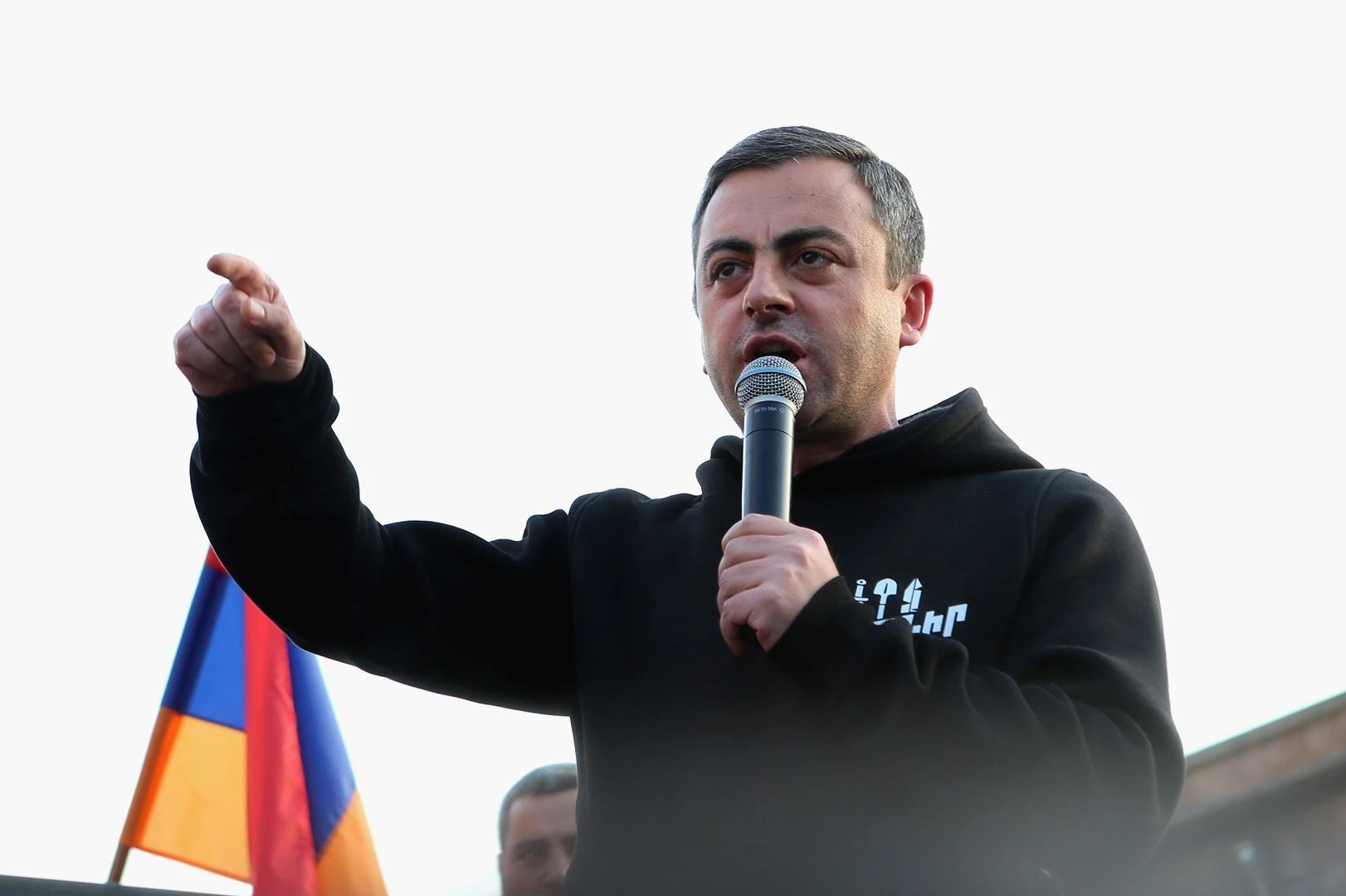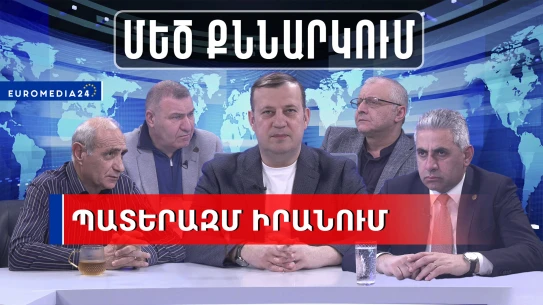Article by Ishkhan Saghatelyan, representative of the Supreme Body of the ARF of Armenia, deputy of the RA NA "Armenia" faction. "For the sake of dignity and for ensuring the unity of France... Considering the new order established in Europe, I am choosing the option of cooperation with Germany from today."
Philippe Pétain, Prime Minister of the collaborationist regime of Vichy France, “I believe that this is peace for our time.
Go home and sleep peacefully."
Neville Chamberlain
Prime Minister of Great Britain
Under the name of rational patriotism and pacifism, the phenomenon of cooperating with the enemy and realizing the latter's political goals is not new in world history.
In Armenia today, it is often easy to confuse the statements of those in power with the representatives of hostile states and, naturally, these statements cause anger and bewilderment among the citizens. Moreover, such statements often lead to the desperate discourse of "we are not a nation", "this is not enough for us", "there is no salvation for this nation", where we find ourselves in the destructive clutches of self-flagellation.
However, it is enough to remember the episodes of recent world history and see that in the conditions of heavy defeats, despair and uncertainty, even the nations with a long history of statehood have followed a similar path and have become victims of hostile propaganda.
It is enough to remember the examples of European countries during the Second World War. Cooperation with the enemy under the name of pragmatism in 1938. on September 30, the leaders of Great Britain, France, the leader of Fascist Germany, Adolf Hitler, and the leader of like-minded Italy, without Czechoslovakia, signed the agreement on the partition of Czechoslovakia. This was done in the name of ensuring peace in Europe.
Furthermore, Chamberlain and Hitler signed an additional Anglo-German declaration in which they expressed their intention "never again to go to war with each other" and to settle disputes exclusively by peaceful means. After returning to his homeland, the Prime Minister of Great Britain literally declared that he "brought the peace of our time".
Just two years after the signing of the treaty, the rockets of the fascist army were already exploding in the sky of London, and 60% of the territory of France was occupied by the fascist troops. Under these conditions, Great Britain adopted the option of a change of leadership.
Chamberlain, who supported Hitler's pacification by meeting all of Hitler's demands, was replaced by Churchill, who was guided by the logic of fighting fascism at all costs and everywhere. France chose the path of cooperation with Nazi Germany. The Vichy regime, established in the unoccupied part of French territory under Marshal Pétain, argued that direct confrontation with the Germans would lead to the total destruction of France.
"We must cooperate with Germany, because in this way we can preserve the future of France." the government established in France was guided by this slogan.
In exactly the same way as Nikol Pashinyan surrendering territories in Syunik and Tavush under the threat of war, signing a paper with Azerbaijan and Turkey represents the only pragmatic way with no alternative, which should be chosen to ensure the "future" of Armenia.
The policy within the country was also the same.
The Vichy regime sought to destroy traditional values using a vocabulary that portrayed the French Third Republic as morally and politically destroyed.
They blamed France's defeat on "rot" and the influence of communists, Jews, and left-wing intellectuals, positioning themselves as saviors restoring "order." The anti-Jewish policies of the Vichy government often exceeded even German demands.
Such a policy is identical to the anti-Artsakh policy in Armenia. For example, even in Azerbaijan, they could not imagine that any government of the RA would deprive the Artsakh Armenians of their citizenship status by one order, actually depriving them of all kinds of political rights.
Resistance as the only real alternative Vichy occupation regime also had resistance inside the country. after all, not all French people were at peace with the idea of serving fascism. However, dissidents and opposition forces faced many serious problems that made public consolidation difficult.
In exile in London, French Resistance leader de Gaulle called for resistance to both Nazi Germany and the Vichy regime.
In 1940 In his speech broadcast on BBC on June 18, General de Gaulle formulated his alternative as follows: "France lost the battle, not the war."
The same is true of the alternative offered by the current Armenian national forces, which, although it takes into account the heavy defeat we suffered, claims that we have the resources to recover, and there is a real alternative to the agenda of surrendering to the enemy, which should begin with the change of power in the country.
However, even dissidents in occupied France had difficulty getting their message across. Vichy regime propaganda portrayed Pétain as a national savior, capitalizing on his World War I hero status.
Meanwhile, all dissidents were portrayed as dangerous, unpatriotic or hostile provocateurs, instilling fear among the population. Special propaganda is being carried out against the Allies, with the aim of presenting Germany, which has occupied 60% of the territory of France, as the only possible alternative.
We have witnessed all these manifestations during the administration of Nikol Pashinyan.
The public mood in the defeated country also played a big role. Many of the French, disappointed in 1940 from defeat, they believed that Pétain's cooperation was the best way to save the rest of France. Economic hardship, food shortages, and the avoidance of war forced people to prioritize survival, leaving little time for political activism.
The end of the period of shame The Vichy regime collapsed after the liberation of France in 1944. Pétain was sentenced to death for treason, which was later commuted to life imprisonment. Pierre Laval was executed in 1945.
After the fall of the Vichy regime and in 1944. After the liberation of France, the Provisional Government of the French Republic and subsequent administrations implemented a series of measures to close the page of French shame and restore democratic governance.
Here are some concrete examples.
1. Punishment of collaborators with the enemy
Thousands of people were tried in the courts established after the war, and many of them lost their civil rights or were deprived of the right to hold public office.
2. Rejection of the legitimacy of the Vichy regime
All the actions of the Vichy regime were declared invalid. All laws and decrees passed were repealed, including those that restricted freedoms or discriminated against certain groups.
3. Economic and social reforms
Major Nazi-collaborating industries and banks, such as Renault, were nationalized to prevent wartime private exploitation and rebuild the economy.
4. Social insurance system
A comprehensive health, pension and social insurance system was established within the framework of the reconstruction of a fair and modern republic.
5. Honoring Resistance Fighters
The contribution of the French Resistance was officially recognized and pensions and honors were provided for its members.
Thus, choosing the path of cooperation with the enemy did not save Great Britain and France from being involved in a disastrous war, heavy human losses and destruction.
In the case of France, a longer collaboration with evil led to the necessity of forming an entirely new state. And only the resistance shown against that evil was vital for overcoming the situation, building a new state, allowing to deny the identification with evil in the future. The same is the case with Armenia.
Only the consistent resistance against the external enemy and the established regime in the country can open the door for building the state of our dreams.
No matter how difficult and sometimes useless the various struggles and movements against the regime of the day may seem, these are the seeds of tomorrow's victory and the foundation of building a state of new national quality."


